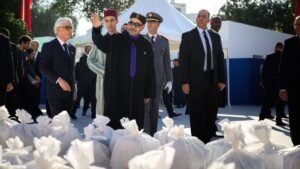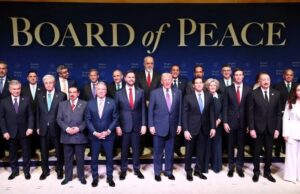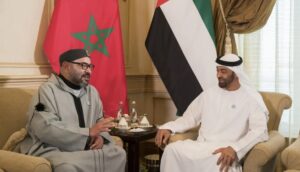UN Envoy Commends Morocco’s Key Role in Advancing Peace in Libya

Rabat, The Gulf Observer: The United Nations Special Representative for Libya, Hanna Serwaa Tetteh, on Monday expressed strong appreciation for Morocco’s ongoing support in facilitating dialogue and advancing the political process in Libya.
Speaking to the media following her meeting with Moroccan Minister of Foreign Affairs Nasser Bourita in Rabat, Tetteh described Morocco as a “very important partner” in efforts to bring Libyan parties closer to a sustainable political agreement. She acknowledged Morocco’s pivotal role in supporting the UN mission and promoting peace through constructive engagement with Libyan stakeholders.
“I want to express my deep appreciation for Morocco’s consistent support for the UN-led political process and for helping to move forward several critical stages of the Libyan dialogue,” Tetteh said.
The UN envoy highlighted that Morocco’s contribution had been instrumental in building common ground among rival Libyan factions, particularly during crucial phases of negotiations.
Tetteh also addressed the current situation in Libya, describing it as “very sensitive,” with recent tensions in Tripoli and challenges surrounding the municipal elections. She noted that the United Nations is now actively working with Libyan parties to establish a new political roadmap aimed at overcoming the ongoing impasse.
Reaffirming the UN’s commitment to Libya’s peace and stability, Tetteh emphasised the importance of continued collaboration with Libya’s national actors, Morocco, and the broader international community.
Morocco has long played a constructive and influential role in the Libyan peace process. In 2015, the country hosted the Skhirat Agreement talks, which led to the signing of a UN-backed political agreement aimed at unifying Libya’s rival governments and institutions. The accord marked a significant step towards national reconciliation and institutional legitimacy.
In recent years, Morocco has hosted several rounds of inter-Libyan dialogue, particularly between representatives of the House of Representatives and the High Council of State, to facilitate consensus on key issues, including appointments to sovereign positions and the legal framework for holding elections.
Moroccan leaders, including King Mohammed VI and Foreign Minister Nasser Bourita, have consistently underscored the importance of a Libyan-led, inclusive political solution, free from external interference. Rabat maintains that the stability of Libya is essential for the peace and security of the North African region and beyond.
The latest reaffirmation of UN-Morocco cooperation reflects a shared commitment to fostering dialogue, restoring stability, and supporting the aspirations of the Libyan people for unity, peace, and democratic governance.


